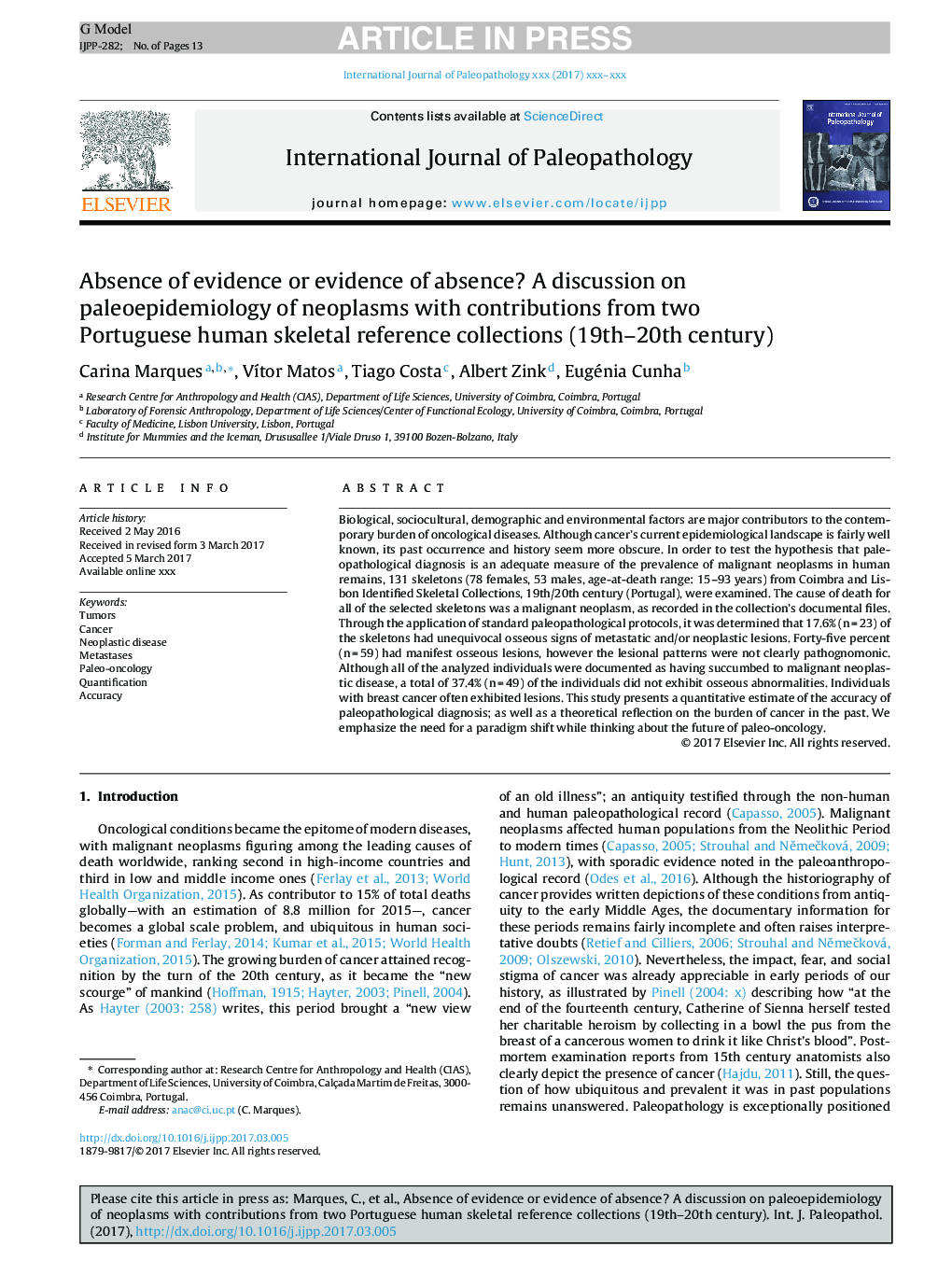| کد مقاله | کد نشریه | سال انتشار | مقاله انگلیسی | نسخه تمام متن |
|---|---|---|---|---|
| 6554764 | 1422370 | 2018 | 13 صفحه PDF | دانلود رایگان |
عنوان انگلیسی مقاله ISI
Absence of evidence or evidence of absence? A discussion on paleoepidemiology of neoplasms with contributions from two Portuguese human skeletal reference collections (19th-20th century)
دانلود مقاله + سفارش ترجمه
دانلود مقاله ISI انگلیسی
رایگان برای ایرانیان
کلمات کلیدی
موضوعات مرتبط
علوم زیستی و بیوفناوری
بیوشیمی، ژنتیک و زیست شناسی مولکولی
فیزیولوژی
پیش نمایش صفحه اول مقاله

چکیده انگلیسی
Biological, sociocultural, demographic and environmental factors are major contributors to the contemporary burden of oncological diseases. Although cancer's current epidemiological landscape is fairly well known, its past occurrence and history seem more obscure. In order to test the hypothesis that paleopathological diagnosis is an adequate measure of the prevalence of malignant neoplasms in human remains, 131 skeletons (78 females, 53 males, age-at-death range: 15-93 years) from Coimbra and Lisbon Identified Skeletal Collections, 19th/20th century (Portugal), were examined. The cause of death for all of the selected skeletons was a malignant neoplasm, as recorded in the collection's documental files. Through the application of standard paleopathological protocols, it was determined that 17.6% (nâ¯=â¯23) of the skeletons had unequivocal osseous signs of metastatic and/or neoplastic lesions. Forty-five percent (nâ¯=â¯59) had manifest osseous lesions, however the lesional patterns were not clearly pathognomonic. Although all of the analyzed individuals were documented as having succumbed to malignant neoplastic disease, a total of 37.4% (nâ¯=â¯49) of the individuals did not exhibit osseous abnormalities. Individuals with breast cancer often exhibited lesions. This study presents a quantitative estimate of the accuracy of paleopathological diagnosis; as well as a theoretical reflection on the burden of cancer in the past. We emphasize the need for a paradigm shift while thinking about the future of paleo-oncology.
ناشر
Database: Elsevier - ScienceDirect (ساینس دایرکت)
Journal: International Journal of Paleopathology - Volume 21, June 2018, Pages 83-95
Journal: International Journal of Paleopathology - Volume 21, June 2018, Pages 83-95
نویسندگان
Carina Marques, VÃtor Matos, Tiago Costa, Albert Zink, Eugénia Cunha,